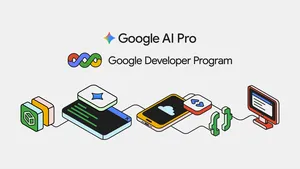Partnering with NSF on human-AI collaboration
Today, in partnership with the U.S. National Science Foundation (NSF), we are announcing a National AI Research Institute for Human-AI Interaction and Collaboration. Google will provide $5 million in funding to support the Institute. We will also offer AI expertise, research collaborations, and Cloud support for Institute researchers and educators as they advance knowledge and progress in the field of AI.
Studies have shown that humans and AI systems operating together can make smarter decisions than either acting alone. In the past few years we’ve seen the increasing use of AI to support people and their decision making in sectors like medicine, education, transportation and agriculture. Conversely, people also support AI systems and their decision making through training data and model design, testing and operation, and continued feedback and iteration on system performance. People and AI systems shape each other, and in order to realize the full potential of AI for social benefit, positive and productive human-AI interaction and collaboration is critical.
Google has been working in this area over the last several years, publishing hundreds of research papers in human-computer interaction and visualization; bringing industry and academic experts together at events like the PAIR Symposium and top research conferences; designing tools like Facets, the What-If Tool, and the Language Interpretability Tool to better understand datasets and models; creating the Model Card Toolkit for model transparency and a People + AI guidebook to support human-centered AI development; building better human-AI interfaces in our products like smart predictions in Gboard and auto-captioning with the Live Transcribe app; and enabling anyone to help make AI-powered products more useful through efforts like Crowdsource and Translate Community.
The Institute we are announcing with NSF will support interdisciplinary research on a variety of modes of interaction between people and AI—like speech, written language, visuals and gestures—and how to make these interactions more effective. Importantly, the research, tools and techniques from the Institute will be developed with human-centered principles in mind: social benefit, inclusive design, safety and robustness, privacy, and high standards of scientific excellence, consistent with the Google AI Principles. Research projects in the Institute will engage a diverse set of experts, educate the next generation and promote workforce development, and broaden participation from underrepresented groups and institutions across the country. All research outcomes will be published to advance knowledge and progress in the field.
U.S. universities and research institutions, individually and in collaboration, are welcome to apply. We are proud to partner with NSF in our ongoing efforts to promote innovation and technology leadership, and look forward to supporting many brilliant and creative ideas.






